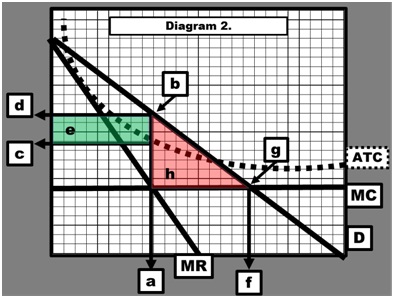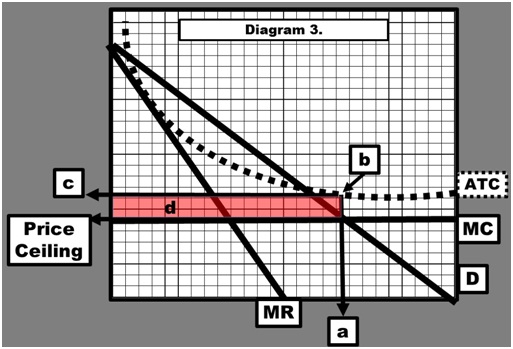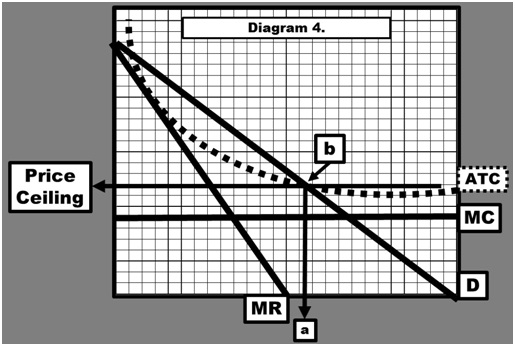Assignment:
Monopoly Pricing
General Instructions for all Assignments
Insert your answers below, or in the appropriate space provided for in the question. Your answers should follow APA format with citations to your sources and, at the bottom of your last page, a list of references.
Your answers should also be in Standard English with correct spelling, punctuation, grammar, and style (double spaced, in Times New Roman, 12-point, and black font). Respond to questions in a thorough manner, providing specific examples of concepts, topics, definitions, and other elements asked for in the questions.
In this Assignment, you will demonstrate your understanding of monopoly pricing, based on different management criteria, the impact of price regulation of monopolies, and provide detailed explanations of how price effect and quantity effect cause marginal revenue to be different from the price.
Questions:
1. The Gulf Sea Turtle Conservation Group (GSTCG), a 501(c) (3) non-profit group of volunteers working to collect data on nesting sea turtles and to promote sea turtle conservation,is considering creating a video to educate people about sea turtle conservation. The cost of duplicating the video on a DVD and mailing the DVD is $6.58. In a GSTCG member meeting, the video plan was discussed.
Table 1. shows the expected demand for the DVD at different suggested donation levels, and they can act as a single-price monopolist if they choose to.
The receipts will be used to fund GSTCG supplies for their data collection and conservation work. At the end of each sea turtle nesting season, any excess funds are donated by the GSTCG to a local non-profit sea turtle research and rehabilitation facility.
Table 1.
|
|
Suggested Donation per DVD Request
|
Anticipated Number of DVD Requests
|
|
$19.00
|
0
|
|
$15.00
|
2
|
|
$9.50
|
4
|
|
$7.75
|
10
|
|
$3.00
|
15
|
|
$0.00
|
20
|
a. Complete Table 2. by computing the Total Revenue, Marginal Revenue, and Profit columns.
|
Table 2.
|
|
Suggested Donation per DVD Request
|
Anticipated Number of DVD Requests
|
Total Revenue
|
Marginal Revenue
|
PROFIT
|
|
$19.00
|
0
|
|
|
|
|
$15.00
|
2
|
|
|
|
|
$9.50
|
4
|
|
|
|
|
$7.75
|
10
|
|
|
|
|
$3.00
|
15
|
|
|
|
|
$0.00
|
20
|
|
|
|
b. The President wants the GSTCG to provide videos to generate the most possible donations (Total Revenue). What price is the President of the GSTCG favoring and how many people will receive the DVD if this becomes the price of the suggested donation? Explain your answers.
c. The Education Outreach Committee wants the GSTCG to provide videos to the most possible number of people. What price is the Educational Outreach Committee favoring and how many people will receive the DVD if this becomes the price of the suggested donation? Explain your answers.
d. The Treasurer of the GSTCG wants the DVD program to be as efficient as possible so that the marginal revenue equals marginal cost. What price is the Treasurer favoring and how many people will receive the DVD if this becomes the price of the suggested donation? Explain your answers.
e. The Fund Raising Committee wants the DVD program to generate as much profit in donations as possible. What price is the Fund Raising Committee favoring and how many people will receive the DVD if this becomes the price of the suggested donation? Explain your answers.
2. A business has been created to provide needed services to its market. As the only provider of this service, it functions as a monopoly, with the ability to set prices and having the entire market demand schedule as its demand curve.
Because the monopoly is newly formed, there is no government intervention into the monopoly's pricing actions. Examine Diagram 2. and answer each of the following questions with complete explanations:

a. What is quantity (a)and why is it important?
b. What is the value at point (b) and why is it important?
c. What is the value at point (c) and why is it important?
d. What is the value at point (d) and why is it important?
e. What is the meaning of the green rectangle labeled(e)?
f. If there were no monopoly and this was a perfectly competitive market, what would quantity at point (f) be and why is it important?
g. If there were no monopoly and this was a perfectly competitive market, what would point (g) be and why is it important?
h. For the market in which the monopoly now operates, what does the red triangle labeled (h) mean, and why is it important?
3. A governmental regulating agency was created to oversee the monopoly in Question 2's operations and pricing.
Diagram 3. depicts a new price ceiling set by the regulators. Answer each of the following questions with complete explanations:

a. What is quantity (a) and why is it important?
b. What is the value at point (b) and why is it important?
c. At what level was the price ceiling set?
d. What is the value at point (c) and why is it important?
e. At this price ceiling level, will the monopoly make any monopoly profits?
f. At this price ceiling level, will the monopoly cover its costs?
g. At this price ceiling level, will the monopoly continue in business in the long run?
4. Diagram 4.depicts a different price ceiling set by the regulators for the monopoly in Question 2. Answer each of the following questions with complete explanations:

a.What is quantity (a) and why is it important?
b.What is the value at point (b)and why is it important?
c. At what level was the price ceiling set?
d. At this price ceiling level, will the monopoly make any monopoly profits?
e. At this price ceiling level, will the monopoly cover its costs?
f. At this price ceiling level, will the monopoly continue in business in the long run?
5. Explain your understanding of how price effect contributes to the fact that, for a monopoly, marginal revenue is always less than the price.
6. Explain your understanding of how quantity effect contributes to the fact that, for a monopoly, marginal revenue is always less than the price.